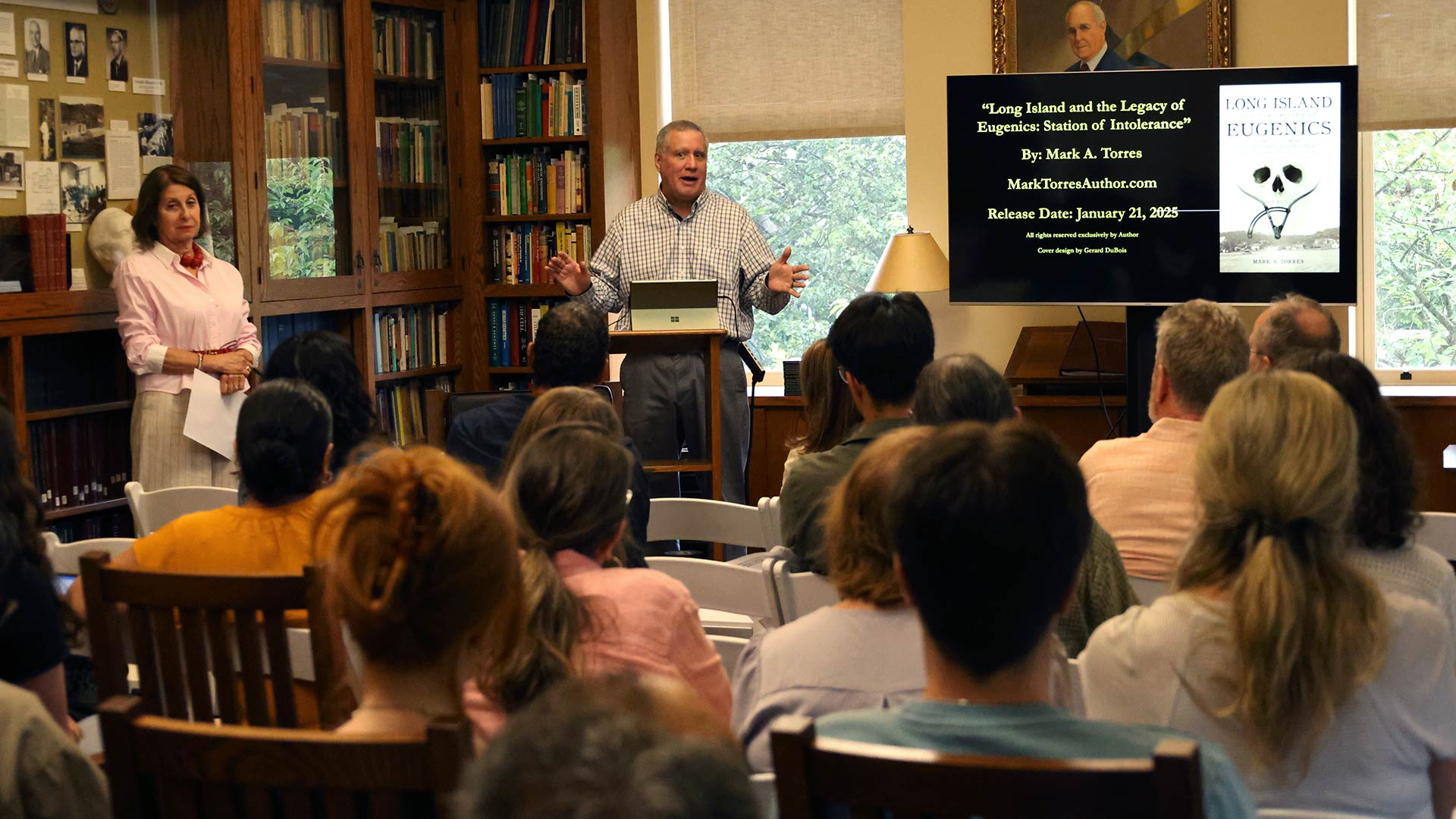On August 20, the Cold Spring Harbor Laboratory (CSHL) Center for Humanities & History of Modern Biology hosted an author talk with Marc Torres, who discussed his latest book, Long Island and the Legacy of Eugenics: Station of Intolerance.
From 1910 to 1939, the Carnegie Institute of Washington’s Station for Experimental Evolution, a predecessor of modern-day CSHL, operated the Eugenics Records Office (ERO) in Cold Spring Harbor, NY. Proponents of this since-debunked area of research sought to link bogus concepts like “hereditary criminality” to so-called “bad” genes. The national eugenics movement led to immigration restrictions and even sterilization programs across the United States. In 1939, Carnegie President Vannevar Bush withdrew all funding for the ERO, ending eugenics research at Cold Spring Harbor.
A key source for Torres’ deep dive into this dark period of Long Island history was the CSHL Library & Archives’ ERO collection, which includes correspondence, photographs, and journals from many of the discredited movement’s major figures. In addition to the ERO collection, the CSHL Archives offer many invaluable resources documenting the history of biology and medical research throughout the 20th and 21st centuries. The Archives house over 5,000 linear feet of written materials, open to scientists, historians, and the public. Contained within are the personal collections of nearly three dozen notable scientists, a large repository of oral-history interviews, and records of nearly 100 international symposia on the life sciences.
Like Torres’ book, the CSHL Library & Archives provide science and society with a window into our collective past, in hopes that together, we may correct the mistakes of prior generations and help create a better future for all.
Written by: Nick Wurm, Communications Specialist | [email protected] | 516-367-5940
